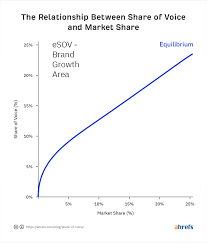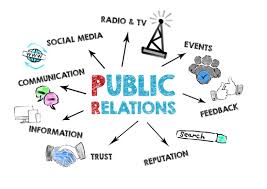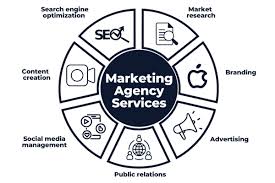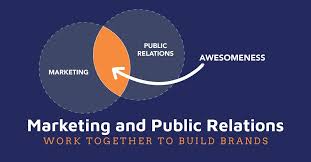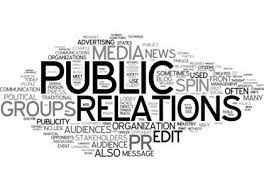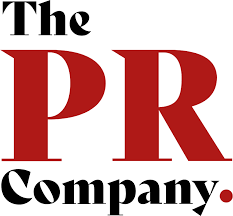Unlocking Success: Leveraging Share of Voice in PR Strategies
The Importance of Share of Voice in Public Relations
Share of Voice (SOV) is a crucial metric in public relations that measures the percentage of conversation or media coverage a brand receives compared to its competitors within a specific industry or market. Understanding and monitoring your share of voice can provide valuable insights into your brand’s visibility, reputation, and competitive positioning.
One key benefit of tracking share of voice is that it allows you to assess your brand’s performance relative to competitors. By analysing the volume and sentiment of media mentions, social media conversations, and other relevant channels, you can identify areas where your brand is excelling or falling behind in terms of visibility and perception.
Monitoring share of voice also enables you to track trends over time and evaluate the impact of your public relations efforts. By measuring changes in share of voice before and after PR campaigns or initiatives, you can gauge the effectiveness of your strategies and make informed decisions on how to improve future communications.
Furthermore, share of voice analysis can help you identify emerging trends, potential threats, and opportunities within your industry. By keeping a close eye on how your brand is being discussed relative to competitors, you can stay ahead of market developments and adjust your PR tactics accordingly to maintain a competitive edge.
In conclusion, share of voice is a valuable metric that provides deep insights into how your brand is perceived in the public domain compared to competitors. By monitoring and analysing share of voice data, you can fine-tune your PR strategies, enhance brand visibility, and ultimately drive business growth.
Understanding Share of Voice in PR: 9 Frequently Asked Questions Answered
- Is share of voice a KPI?
- What is share of voice percentage?
- What is a PPC share of voice?
- What is the share of voice in advertising?
- What does share of voice mean in PR?
- What is included in share of voice?
- How is share of voice calculated?
- What is the SOV rate?
- How is PR share of voice calculated?
Is share of voice a KPI?
The question of whether share of voice is a Key Performance Indicator (KPI) in public relations is a common one. While share of voice is an important metric that provides valuable insights into a brand’s visibility and competitive positioning, it is not typically considered a traditional KPI in the same way that metrics like reach, engagement, or conversion rates are. Instead, share of voice serves as a complementary measure that helps PR professionals assess their brand’s performance in relation to competitors and make informed decisions about their communication strategies. Understanding the role of share of voice within the broader context of PR measurement can enhance the effectiveness of PR campaigns and contribute to overall success in building brand reputation and awareness.
What is share of voice percentage?
Share of voice percentage in public relations refers to the measurement of a brand’s presence and visibility in relation to its competitors within a specific industry or market. It quantifies the percentage of overall conversation, media coverage, or online mentions that a brand receives compared to its rivals. By calculating share of voice percentage, PR professionals can gauge the level of attention and recognition their brand is receiving in the public domain and assess how it stacks up against competing brands. Monitoring and analysing this metric can provide valuable insights into a brand’s competitive positioning, reputation, and overall impact within its industry.
What is a PPC share of voice?
A PPC share of voice refers to the percentage of ad impressions that a particular advertiser receives within a specific paid search market. It indicates how often your ads are being shown compared to your competitors’ ads for the same set of keywords. Monitoring your PPC share of voice is crucial in determining your visibility and competitiveness in paid search campaigns, allowing you to assess the effectiveness of your ad placements and bidding strategies. By analysing your PPC share of voice, you can make informed decisions to optimise your paid search efforts and improve your overall online presence.
What is the share of voice in advertising?
Share of voice in advertising refers to the percentage of advertising presence a particular brand or company has within a specific market or industry compared to its competitors. It measures the share of advertising space or time that a brand occupies relative to others in the same space. Monitoring share of voice in advertising is essential for brands to assess their visibility, competitiveness, and impact on target audiences. By understanding their share of voice, companies can make informed decisions on their advertising strategies, allocate resources effectively, and strive to increase their presence in the market to achieve greater brand awareness and customer engagement.
What does share of voice mean in PR?
Share of voice in PR refers to the percentage of conversation or media coverage that a particular brand or company receives compared to its competitors within a specific industry or market. It is a key metric used to measure the visibility and impact of a brand’s communications efforts relative to others in the same space. Monitoring share of voice allows PR professionals to assess their brand’s performance, track trends, evaluate the effectiveness of PR campaigns, and identify opportunities for improvement. By understanding and analysing share of voice data, organisations can gain valuable insights into their competitive positioning and make informed decisions to enhance their public relations strategies.
What is included in share of voice?
Share of Voice in public relations encompasses various elements that contribute to a brand’s visibility and presence in the media landscape. It includes factors such as the volume of media mentions, social media conversations, press coverage, online reviews, and overall brand references across different channels. Monitoring share of voice involves tracking not only the quantity but also the quality and sentiment of these mentions to gauge the brand’s standing relative to competitors. By analysing what is included in share of voice, PR professionals can gain valuable insights into how their brand is perceived, identify areas for improvement, and make informed decisions to enhance their communication strategies effectively.
How is share of voice calculated?
Calculating share of voice in public relations involves determining the percentage of total conversations or media coverage that a particular brand or company receives compared to its competitors within a specific industry or market. The formula for calculating share of voice typically involves dividing the total number of brand mentions by the total number of industry mentions and then multiplying the result by 100 to get a percentage. This calculation provides a quantitative measure of a brand’s presence and visibility relative to its competitors, offering valuable insights into its competitive positioning and performance in the public domain. Tracking share of voice allows PR professionals to assess the effectiveness of their communication strategies, identify areas for improvement, and make informed decisions to enhance brand reputation and market share.
What is the SOV rate?
The Share of Voice (SOV) rate is a metric used in public relations to measure the percentage of conversation or media coverage a brand receives compared to its competitors within a specific industry or market. It provides insights into the brand’s visibility and competitive positioning by quantifying the extent to which it is being talked about relative to others in the same space. Monitoring and analysing SOV rate allows PR professionals to assess their brand’s performance, track trends over time, evaluate the impact of PR efforts, and make informed decisions on how to enhance visibility and reputation in the public domain.
How is PR share of voice calculated?
Calculating PR share of voice involves determining the percentage of media coverage or conversation that a particular brand receives compared to its competitors within a specific industry or market. This is typically calculated by measuring the total number of mentions, articles, or social media interactions that mention a brand, dividing it by the total number of mentions for all brands in the same category, and then multiplying by 100 to get the percentage share. By tracking and analysing this data, businesses can gain valuable insights into their brand’s visibility and competitive positioning in the public domain.



